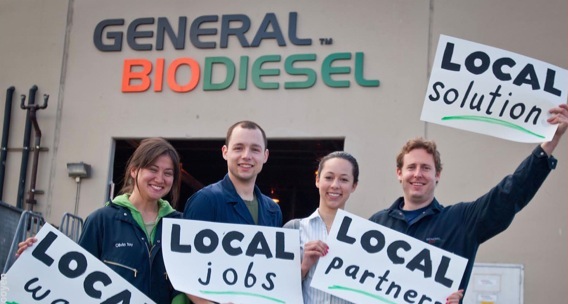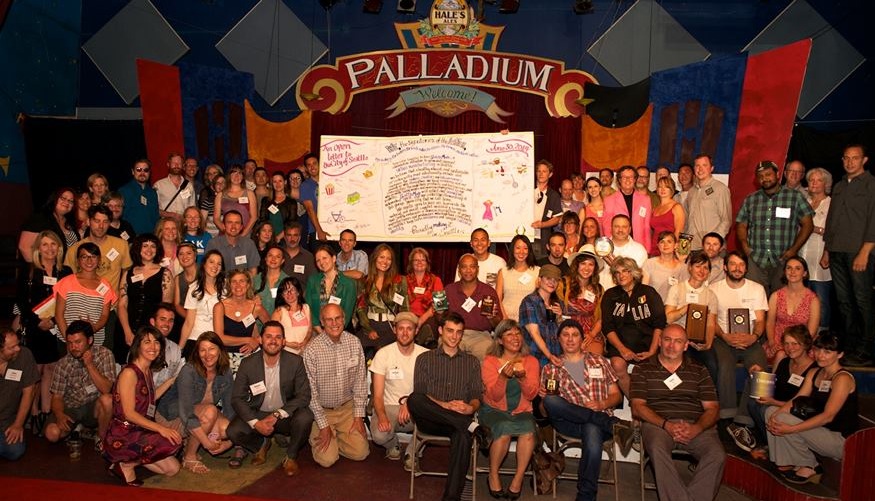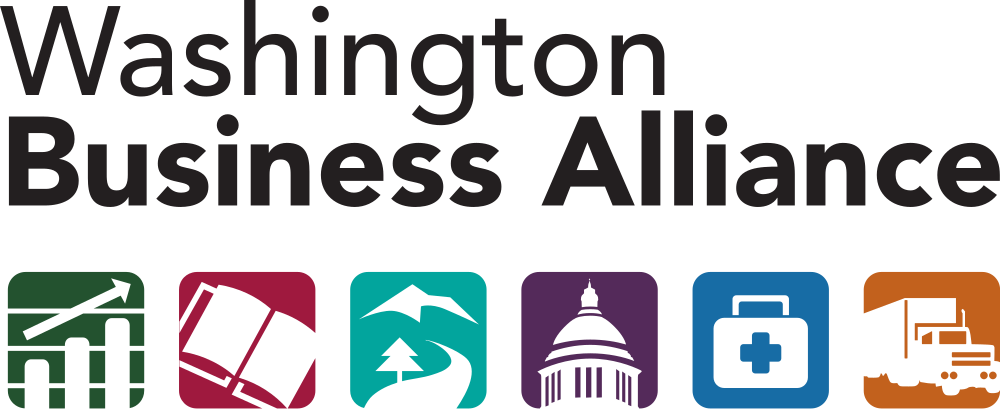
What should a 21st century Seattle look like? We know it must include a commitment to sustainability, but how do we define sustainability in its full measure? Is it simply smart transport, energy-efficient buildings, widespread recycling, and so forth? Or are there other key elements we need to include such as equity, diversity, and creativity to ensure our long-term resilience? And what role is played by the economy, specifically manufacturing?
A fundamental one, it turns out. Producing locally – from food and energy to materials and consumer products – means more secure jobs and income for our region and less reliance on an often uncertain global economy.
A broad and vibrant local manufacturing sector provides a more diverse base of living wage jobs, more fertile ground for entrepreneurs, and enormous opportunities to reduce the environmental impact of production and distribution.
Seattle is home to a number of formidable global brands and global trade plays a significant role in our economy. And yet, we are also at risk of developing a pronounced “hourglass economy,” with concentrations of highly paid professionals and low-wage service workers, but a missing middle.
In addition to our powerhouse multinationals, we need to nurture a vibrant and diverse sector of locally owned manufacturing and production businesses. These businesses are key to keeping and growing family-wage jobs, and to preserving our cultural identity and community vitality.
In addition to the well-known multiplier effect associated with local independent businesses, it’s also been shown that the higher the concentration of locally owned businesses in a city, the greater that city’s resilience, as measured by levels of civic engagement, support of local schools and nonprofits, even public health.
Urban Manufacturing, Innovation Economy.
Across the country a confluence of demography, culture, and technology have come together to fuel a renaissance in urban manufacturing, and a growing number of grassroots coalitions. Nonprofits such as SF Made, Portland Made, Pratt Center for Community Development have sprung up to support and accelerate this trend.
Urban manufacturers are both fueling and democratizing the innovation economy. From a reimagining of the basics—artisanal food and drink, apparel, crafts—to maker spaces where everyday entrepreneurs are tapping into the seemingly unlimited potential of additive (3-D) manufacturing, a new wave of innovators are building companies and reinventing long-standing sectors.
Density allows urban manufacturers to be more productive than those in suburban areas, facilitating deeper regional supply chains, which also generate multiplier effects. With greater density comes opportunities for collaboration and shared infrastructure, resulting in more efficiency and a lower carbon footprint. That’s increasingly critical because by 2050 two-thirds or more of the global population will be concentrated in urban areas.
Seattle Made
What’s been happening around the country is encouraging, especially in San Francisco where SF Made has reported annual job growth of 10-13 percent in urban manufacturing jobs during the four short years they’ve been working to support and promote this sector.

- The crowd assembled at ‘Seattle Made’ July 30, 2014 kickoff event.
Drawing inspiration from their success, over the past few months a coalition of local businesses and organizations have been working to launch Seattle Made. A collaborative initiative to grow and support Seattle’s producers and manufacturers, Seattle Made is being organized by Seattle Good Business Network, a nonprofit dedicated to building a sustainable local economy.
Local, Resilient, Unique
Seattle Made’s objectives include expanding opportunities for local ownership and meaningful employment (especially for our city’s low-to-moderate income individuals with less typical skillsets), building our region’s long-term resiliency, and celebrating Seattle’s unique cultural identity. A cornerstone of the program will be the Seattle Made brand, which will reflect our innovative and independent spirit, and our collective stewardship of our urban and natural environment.
Online Directory of Local Manufacturers and Producers Planned
On June 30, 150 people representing over 100 companies and organizations convened at Hale’s Palladium to learn about Seattle Made, voice what they’d like to see from the initiative, and gather the momentum necessary to launch this fall with a brand platform and online directory of local manufacturers and producers.
An impressive range of industries and products were represented. These included makers of bikes and propellers, but also raincoats, mattresses, chocolate, kimchi, and beer to name just few— all proudly made here in Seattle! These makers are eager not just for the recognition of the value they bring to Seattle, but for the strength that comes from having a collective voice, access to shared resources, and peer support.
With visionary local institutions including BECU, Washington Federal, and Vulcan jumping in as Founding Partners, and the City of Seattle pledging to support the initiative in a variety of ways, Seattle Made is off to a strong start.
What’s Next?
We can again take our inspiration from other forward-thinking cities that have successfully grown jobs and revitalized neighborhoods by repurposing moribund or underutilized industrial lands and buildings into vibrant manufacturing and production hubs – such as BlueSprout in Oakland and the Brooklyn Navy Yard in New York. The Brooklyn Navy Yard’s financial impacts are expected in 2015 to reach $2.35 billion in recurring annual output with over 30,000 direct, indirect, and induced jobs, and all with a throughline of sustainability.
These collaborative spaces afford the social, material, intellectual, and financial resources to train workers, incubate new businesses, and accelerate existing ones.
As the fastest growing major city in the U.S., and one that is known for its smarts and sustainability, Seattle has the opportunity to be a global leader in reimagining what the city of the future looks like.
If our local businesses, entrepreneurs, City, Port, and other public and private institutions work together, in ten years we could have multiple, thriving innovation districts from the Duwamish to Interbay to Rainier Beach.
If as a city we truly value economic fairness, our independence, and our finite natural resources, we must intentionally cultivate a diverse economic ecosystem that includes a vibrant urban manufacturing sector and those makers who foster opportunities for meaningful employment and steward this beautiful place we’re lucky to call home.
To learn more about Seattle Made or to get involved, contact Christine Hanna or Erin Nelson.
